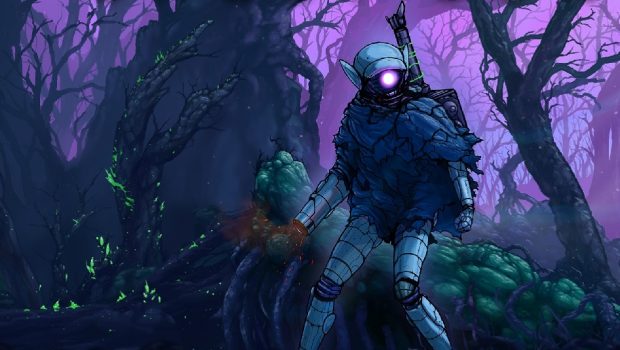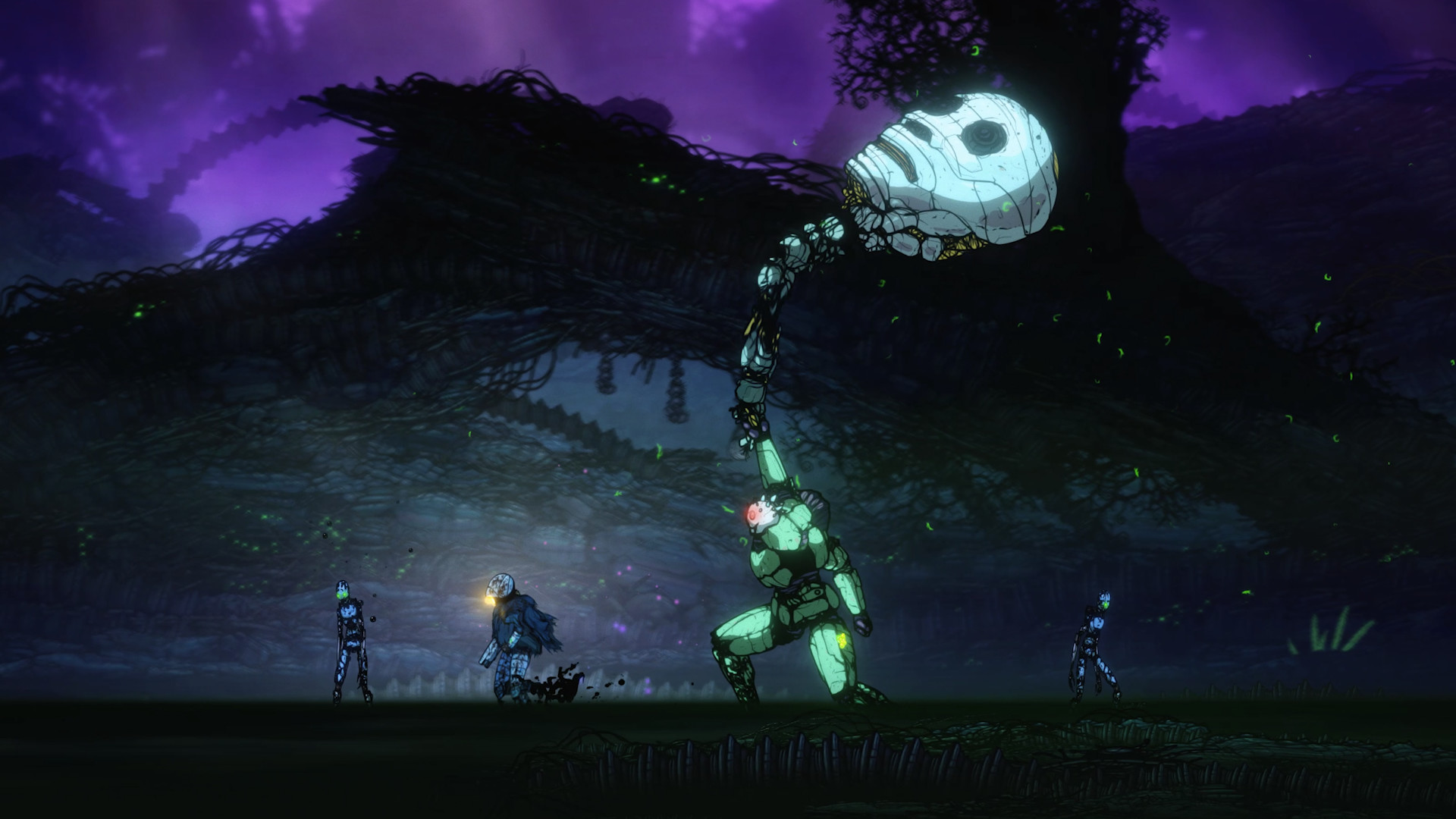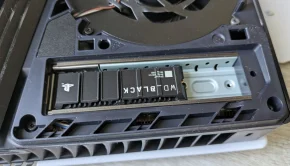Ghost Song Review (Ghost Song PS5 Review)
Metroid Souls
Summary: Ghost Song is a haunting trip to a dying world worth taking.
3.5
Ghost Song is a fantastic yet challenging Metroidvania that wears its influences well.
As soon as you start Ghost Song, it’s clear that the Metroid part of Metroidvania is where the game takes most of its queues. Exploration and platforming are pure Metroid; for a start, your main weapon is an arm cannon.
Its also a Soulslike in al the usual ways; you have limited healing items, all your currency is dropped when you die, and you must stomp back to where you died to retrieve it; it’s also used to level up your character’s damage, health, and stamina at respawn points around the map.
Combat can also be utterly unforgiving, with even basic enemies capable of chewing through your health bar with only a couple of hits and leaving almost no room for error. The buggers can also trap easily trap you in a corner and beat you to death. Especially if there’s a mob. It also steals the worst idea from Dark Souls 2 and locks away a part of your health bar every time you die. (Until you repair your body, which you have to pay for)
On the plus side, if you want to play Ghost Story as a straight Metroidvania, there’s explorer mode that gets rid of most of the more frustrating Soulslike elements; though the enemies do still hit like a ton of bricks, at least you keep all of your cash when you die, and it takes you straight to your last checkpoint where you can level up.
There are some great added twists to how you attack. As well as shooting, you can also smack enemies with your gun arm. However, as you shoot, the arm heats up and becomes less effective at range, but your melee attack becomes a lot more powerful. But your melee attack is tied to a stamina bar, so you can’t overuse that, either. This creates a fun risk vs. reward system that encourages you to change up how you approach fights and to use every tool in your arsenal.
Although a fairly standard Metroidvania in most respects, with you finding upgrades while exploring a large map full of hidden passages, dangerous foes, and the occasional save room, one way it does deviate is that you can’t use all of the upgrades you find at once. Instead, you have to equip them to different slots and range from simple weapon upgrades and firing modes to seeing enemies’ health bars and much more besides. This stops your character from ever feeling overly powerful and lets you tailor your loadout to your favored playstyle, but becoming overly powerful is one of the best parts of the late game in most Metroidvanias.
The story is also pretty compelling, with you waking on a strange planet inside the Deadsuit. Who you are, why you woke up and where you are, and if anyone else is alive(ish) are key plot points. But it’s one of those stories where it’s best to go in knowing as little as humanly possible, and I don’t want to spoil it.
The presentation is also top-notch, with beautiful parallax scrolling backgrounds, great art direction, decent animation, and a minimalistic but haunting soundtrack accompanied by punchy sound effects.
Final Thoughts
Ghost Song is a decent Metroidvania that avoids feeling derivative thanks to some great world-building and engaging risk Vs reward combat systems. While its Soulslike elements can make the game feel punishing for the sake of it at times, this is somewhat alleviated by the explorer mode that makes it play more like a challenging but traditional Metroidvania.








